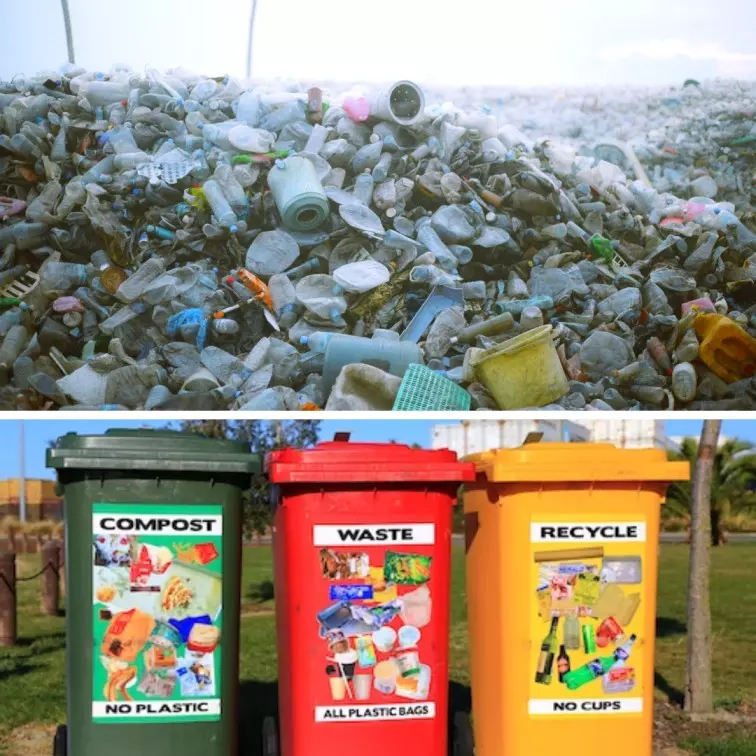India's Plastic Menace! Only 30% Of India's 3.4 Million Tonnes Of Annual Plastic Waste Is Recycled, Report
Writer: Jayali Wavhal
She writes about gender issues, human interest, and environment.
India, 12 Jan 2023 10:56 AM GMT
Editor : Shiva Chaudhary |
A post-graduate in Journalism and Mass Communication with relevant skills, specialising in content editing & writing. I believe in the precise dissemination of information based on facts to the public.
Creatives : Jayali Wavhal
She writes about gender issues, human interest, and environment.
The report states that India's production of plastic garbage increased by a factor of two during the aforementioned time. Together, Maharashtra, Gujarat, and Tamil Nadu account for 38 per cent of all the plastic waste produced in India.
India produces over 3.4 million tonnes (MT) of plastic garbage, of which only 30 per cent is recycled, stated a research report released on Wednesday (January 11). The research, titled "Plastics, The Potential and Possibilities", was prepared in association with the Indian Institute of Science (IISc) and Praxis Global Alliance.
According to the report presented in the nation's capital by the Marico Innovation Foundation, the country's use of plastic has increased at a compound annual growth rate (CAGR) of 9.7 per cent over the past five years, from 14 MT in the fiscal year 2016–17 to 20 MT in 2019–20.
Plastic Consumption Grown Significantly
The research states that India's production of plastic garbage increased by a factor of two during the aforementioned time. Together, Maharashtra, Gujarat, and Tamil Nadu account for 38 per cent of all the plastic waste produced in India.
"The plastic consumption in India has grown at a significant pace over the past five years, and so has its waste output. India produces 3.4 million tonnes of plastic waste in a year, only 30 per cent of it is recycled," the report said, reported Business Standard.
The analysis found that the entire plastic value chain, from manufacture to trash disposal, has a significant negative influence on the local ecologies it surrounds, whereas the majority of plastic garbage is dumped in landfills or aquatic dumps. This wide-ranging effect has an adverse effect on ecosystems and populations.
Suggestions To Deal With Plastic Menace
In addition to outlawing single-use plastic, the government has been attempting to establish a legal framework that would permit the use of biodegradable plastics in place of single-use plastic. To make a long-lasting difference, there are other powerful policy initiatives that can be deployed. There are other efficient policy initiatives; nevertheless, that can be employed to make a long-lasting difference.
"Landfill and incineration taxes must be levied in India to encourage recycling rather than dumping. Authorise a 'pay-as-you-throw' system, which requires citizens to pay a variable rate per kilogram for a bag of mixed garbage," the report stated.
In addition to special incentives for the bioplastics business, such as corporate income tax deductions, help for infrastructure development, and installation cost reduction, there is a need to regulate the full life cycle of plastic bags, from manufacturing or imports to disposal.
 All section
All section















